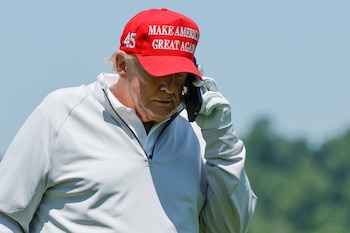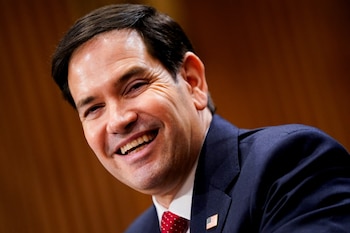Donald Trump spoke by phone with Xi Jinping three days before his inauguration as president of the United States


The Chinese president, Xi Jinping held telephone conversations on Friday with the president-elect of the United States, Donald Trumpaccording to Chinese state media.
The CCTV He said the phone call occurred “on the afternoon of January 17,” without immediately providing further details.
Trump, for his part, said he hopes the United States and China will solve “many problems together,” after speaking by phone with Chinese leader Xi Jinping about trade. fentanyl and TikTok.

“The call has been very good for both China and the United States”Trump said on social media. “I hope we solve many problems together, starting immediately”he said, mentioning the trade, fentanyl, TikTok and “many other topics.” “President Xi and I will do everything we can to make the world more peaceful and secure!”he added three days before returning to the White House.
Earlier on Friday, China announced that Xi would send Vice President Han Zheng to attend Trump’s inauguration next week.
Trump waged a bitter trade war with China during his first term, imposing onerous tariffs on imports from the world’s second-largest economy.

He has threatened to impose tougher measures this time, accusing Beijing of unfair trade practices. and contributing to a devastating fentanyl crisis in the United States.
On Thursday, Beijing criticized the comments of Marco RubioTrump’s nominee for secretary of state, as “unwarranted attacks” after the senator, at his confirmation hearing, called China “the most dangerous near-peer adversary” the United States has ever faced.
“The US side should establish a correct understanding with China, stop unjustified attacks and smear campaigns against China.”Foreign Ministry spokesman Guo Jiakun said at a regular press conference.
In December, Xi said China was willing to engage in dialogue and “expand cooperation” with the United States, but warned that a trade war “would have no winners.”

The decision to send the Chinese vice president, announced this Friday in China by the Ministry of Foreign Affairs, comes more than a month after Trump extended the unusual invitation to Xi, a break with tradition, since no head of state of that country He has previously made an official visit to the United States for the inauguration.
“We are ready to work with the new US government to enhance dialogue and communication, properly manage differences, expand mutually beneficial cooperation, jointly pursue stable, healthy and sustainable China-US relations, and find the right way so that both countries get along well.”said the ministry spokesperson when announcing the decision.
Other foreign leaders have talked about being invited to Trump’s inauguration, including the Argentine president Javier Milei already the Italian prime minister Giorgia Meloni. The offices of the Ecuadorian president Daniel Noboa and the Paraguayan president Santiago Pena They have also said that they were invited and plan to attend.

Sun Yun, director of the China program at the Washington-based Stimson Center think tank, said Xi’s decision means “that China is willing to dispense with protocol and attend to what Trump wants.”
“It indicates that China is willing to talk, negotiate and work towards agreements,” Sun wrote.
Danny Russel, vice president of international security and diplomacy at the Asia Society Policy Institute, a nonprofit think tank, said Beijing is protecting itself by sending Han instead of Xi.
“Zero chance that Xi Jinping will allow himself to be a decorative plant at the triumphant coronation of Donald Trump. At the same time, he ensures that China shows enough courtesy to avoid hurting Trump’s ego.Russel wrote. Han’s mission, the former U.S. diplomat said, is “symbolic, not substantive.”
Han will make his trip at a time when the rivalry between the United States and China is about to intensify. Several of Trump’s nominees for key Cabinet posts are known for their tough stance against Beijing, including Sen. Marco Rubio, nominated to be secretary of state. Rubio called China “the most potent, dangerous, and nearly equal-caliber adversary this nation has ever faced” during his confirmation hearing Wednesday, when members of the Senate Foreign Relations Committee urged him to make countering China a top priority.
Beijing prefers leader-level talks, which it believes could help guide bilateral relations, while Trump prefers dealing directly with world rulers.
During his tenure, Xi has traveled abroad for state visits and summits. But he did not attend the coronation of King Charles III, nor did he attend the funeral of Queen Elizabeth II or the ceremony in honor of Nelson Mandela. He sent vice presidents in his place. Han was his special representative for the coronation of King Charles III. When Trump invited Xi to the inauguration in December, it was widely believed that he was unlikely to attend.
(With information from AFP and AP)





